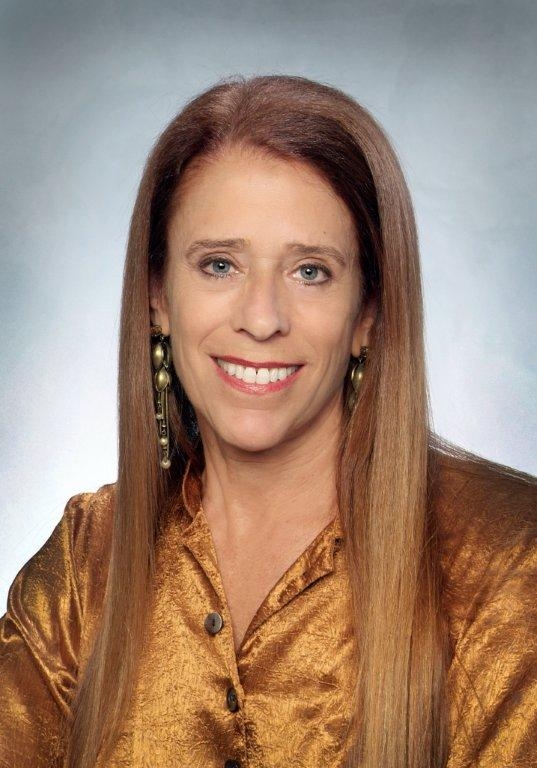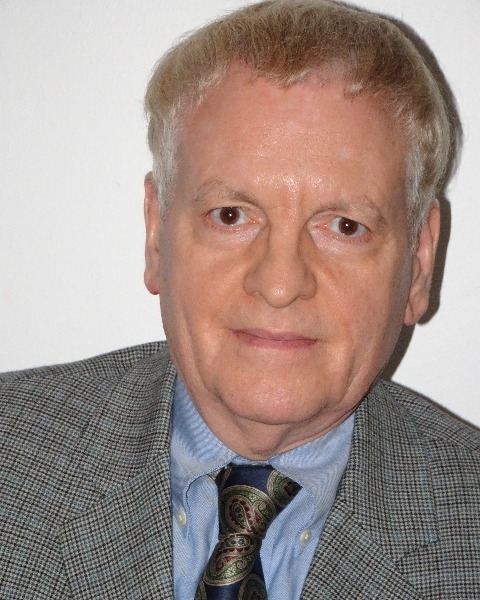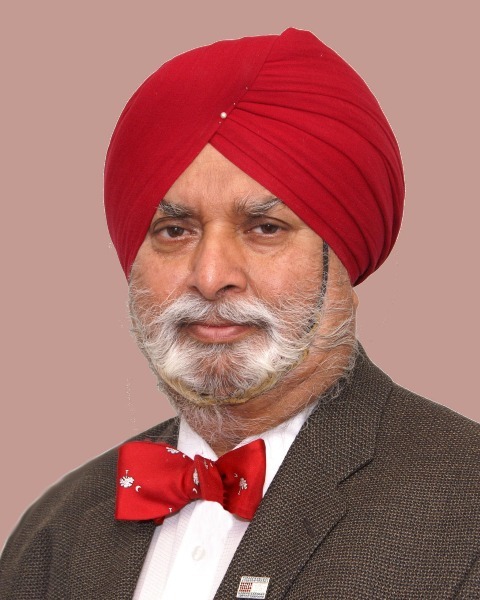
The Effect of THC/Cannabis Use on Pregnant Women and Young Mothers
-
Register
- Non-Member - $39
- Regular Member - $29
- Retired - $29
- Early Career Physician - $29
- Resident - $19
- Student - $19
- Associate - $19
- ASAM Staff - Free!
- International Member - $29
- Emeritus Member - $29
- Provisional Member - $29
- Fellow Member - $29
- Honorary Member - $29
- CRT Member - $29

The Effect of THC/Cannabis Use on Pregnant Women and Young Mothers
Recorded: Thursday, April 13, 2023 to Sunday, April 16, 2023
On-Demand Session
Overview
This 75-minute on-demand session from the ASAM 54th Annual Conference addresses the effect of THC/cannabis use on pregnant women and young mothers.
Marijuana is the most commonly used illicit drug in the U.S. According to the 2021 National Survey on Drug Use and Health, marijuana use among all adult age groups, both sexes, and pregnant women is going up. However, the perception of how harmful marijuana use can be is declining. Research has documented both short and long -term risks of marijuana use, especially during pregnancy. The potential impact of prenatal marijuana use will be described.
The target audience for this intermediate level session includes physicians, nurse practitioners, physician assistants, other clinicians, researchers, residents, fellows, students, and counselors.
This session addresses the following ACGME Competencies: Patient Care and Procedural Skills, Medical Knowledge, Practice-based Learning and Improvement
This session addresses the following IOM Competencies:Provide patient-centered care, Employ evidence-based practice
Learning Objectives
Upon completion, learners will be able to:
- Learning Objectives: The participants will learn about: (a) the scientific research on cannabis THC pregnancy and the developing brain.
- Learning Objectives: The participants will learn about: (b) learn about the clinical aspects of managing pregnant women and young mothers using THC cannabis.
- Learning Objectives: The participants will learn about: (c) learn about the public perceptions, messaging and policy issues in the context of the commercial expansion of the sale and promotion of cannabis.
Registration Rates
| Rate Description | Rate |
| ASAM Member | $29 |
| Non-Member | $39 |
| Associate Member | $19 |
| Resident Member* | $19 |
| Student Member* | $19 |
*Residents, Fellows-in-training, Interns, and Students must join ASAM to receive a discounted registration rate. Click here to become an ASAM member. National and Chapter membership dues apply. There is no charge for Students to become a Member, but verification of student status is required.
Membership Question? Call ASAM at 1.301.656.3920, email us, or view the ASAM website for more information.
Refunds & Cancellations
All ASAM e-Learning Center refund requests must be made in writing to education@asam.org within 90 days of purchase. Those requesting refunds for courses that are in progress will receive partial refunds or e-Learning Center credit. Automatic full refunds will be made for any course with a live-course component that has been cancelled.
Registration Deadline: 05/15/2026
Session Instructions
- Click on the Contents tab to watch the on-demand recording.
- Click Complete Post Test to answer multiple choice questions. Participants will have 10 attempts to pass and must answer 4 out of 5 questions correctly.
- Click Complete Evaluation to provide valuable activity feedback. Scroll down on all questions as there may be answer options that expand past the size of the window.
- Click the button Claim Medical Credits in the box titled Claim Credits & Certificate. Choose the type of credit and click submit. Click the button View/Print Certificate to save or print your certificate. You can view/print your certificate at any time by visiting the ASAM eLearning Center, clicking Dashboard, and clicking Transcript/Achievements.
Need Assistance?
For assistance logging in, accessing activities, claiming credit, or for other questions or concerns, please check the FAQ page or e-mail Education@ASAM.org
ASAM is proud to offer Essential Accessibility to ensure our website is accessible and functional for all our learners while providing free assistive technology for people with the widest possible range of abilities.

Susan R.B. Weiss
PhD
Dr. Susan Weiss is the Director, Division of Extramural Research at the National Institute on Drug Abuse (NIDA), which oversees NIDA’s extramural programs, research training, operations planning, and trans-NIH initiatives, such as the Adolescent Brain Cognitive Development (ABCD) study, and the Brain Research through Advancing Innovative Neurotechnologies® (BRAIN) Initiative. Dr. Weiss also serves as a senior science advisor to the NIDA Director and scientific liaison to the NIH, HHS, and other Federal Agencies. Previously, she served as the Chief of the Science Policy Branch and Acting Director of NIDA's Office of Science Policy and Communications.
Before coming to NIDA, Dr. Weiss was the Senior Director of Research at the National Mental Health Association (now Mental Health America), and previously she directed a translational research program in the Biological Psychiatry Branch of the National Institute of Mental Health.
Dr. Weiss received multiple awards, including NIH Plain Language Awards, NIH and NIDA Director’s Awards, and an Emmy for her contributions to the HBO Addiction Project. She has published more than 150 scientific articles, graduated from SUNY at Stony Brook, and received her Ph.D. in Psychology from the University of Maryland. "

Jordan Davidson
Legislative Affairs Officer
SAM Inc
Jordan Davidson serves as SAM’s Communications and Legislative Affairs Officer. Prior to joining SAM, Jordan worked in Connecticut politics at the state and federal level. At SAM, Jordan is a principal legislative staffer managing federal policy on Capitol Hill. Jordan helped shepherd the passage of the Medical Marijuana and Cannabidiol Research Expansion Act, the first-ever marijuana reform bill signed into law. He has also led the successful efforts to defeat Congressional passage of the MORE, States Reform, Cannabis Administration and Opportunity, and SAFE Banking Acts. Since he joined SAM in 2019, Jordan has specialized in youth outreach and substance abuse prevention. He has been invited as a guest speaker by organizations and members of Congress across the country. Jordan is a Senior studying Political Science at American University in Washington, D.C.

Gregory Bunt
MD, FASAM, FISAM
Gregory Bunt M.D. graduated medical school in 1983 from NYU School of Medicine, and completed his residency in Psychiatry at the Albert Einstein College of Medicine in 1987. He was among the first to complete the Fellowship in Addiction Psychiatry at NYU School of Medicine (1989), and has since been on the NYU Medical School Faculty in the Division of Alcoholism and Drug Abuse, currently as an Assistant Clinical Professor of Psychiatry. He is a diplomat of the American Board of Psychiatry and Neurology with Special Added Qualifications in Addiction Psychiatry and a Fellow of the International Society of Addiction Medicine.
Dr. Bunt is the Past President of the New York Society of Addiction Medicine and the Past President of the International Society of Addiction Medicine. He has been the Medical Director for Daytop Village now Samaritan Daytop Village for over 25 years. He has authored over 20 publications, and speaks nationally and internationally about addiction medicine and addiction psychiatry.

Jag H. Khalsa
MS, PhD
Jag Khalsa MS, PhD serves as a Special Volunteer at the National Institute on Drug Abuse (NIDA), NIH, after retiring on October 31, 2017 from NIDA as the Chief of the Medical Consequences of Drug Abuse and Infections Branch, NIDA, NIH, DHHS. With 50+ years of experience in drug research, he was responsible for developing/administering a national and international program of clinical research on medical and health consequences of drug abuse and co-occurring infections (HIV, HCV, and others). Prior to joining NIDA in 1987, he served for ~10 yrs as a pharmacologist/toxicologist assessing safety (carcinogenic/teratogenic) potential of chemicals [INDs/NDAs] and food additives) and clinical evaluator at FDA. He has published in pharmacology, toxicology, epidemiology and medical journals. He serves on editorial boards of Journals of Addiction Medicine, Research on HIV/AIDS and Palliative Care, Frontiers of Neuroscience, and Clinical Infectious Diseases. He also served on numerous Federal and NIH level committees including the HHS Viral Hepatitis Implementation Group (VHIG), National Commission on Digestive Diseases and its two sub-committees (Liver Research, Diabetes Research), Federal Task Force on TB, NIH Steering Committee on Centers for AIDS Research, and Human Microbiome Workgroup.
He has received distinguished service awards from the FDA Commissioner, NIDA and NIH Directors, Society of Neuro-Immune-Pharmacology (SNIP), Life Time Achievement Awards from SNIP and International Conference on Molecular Medicine (India) and MIT, India; a commendation from the US Congress, Awards of Merit from the International Society of Addiction Medicine (ISAM), the President of the American Society of Addiction Medicine (ASAM), and a Certificate of Appreciation from the Office of Assistant Secretary for Health (Drs. Howard Koh and Ron Valdiserri), DHHS. He has a Ph.D. in neuro-psycho-pharmacology, a Master’s degree in herbal pharmacology, post-doctoral training in CNS/Cardiovascular pharmacology at SK&F, and Toxicology at SRI International.
CME, CE, CEU and Other Credit Types

ACCME Accreditation Statement
The American Society of Addiction Medicine is accredited by the Accreditation Council for Continuing Medical Education (ACCME) to provide continuing medical education for physicians.
AMA Credit Designation Statement
The American Society of Addiction Medicine designates this enduring material for a maximum of 1.25 AMA PRA Category 1 Credits™. Physicians should claim only the credit commensurate with the extent of their participation in the activity.
NAADAC, the Association for Addiction Professionals
This activity has been approved by the American Society of Addiction Medicine, as a NAADAC Approved Education Provider, for educational credits. NAADAC Provider #295, ASAM is responsible for all aspects of the programming.
California Association for Drug/Alcohol Educators (CAADE)
This educational program is approved by CAADE: #CP40 999 1225.
California Association of DUI Treatment Centers (CADTP)
This educational program is approved by CADTP: #205.
California Consortium of Addiction Programs and Professionals (CCAPP)
This educational program is approved by CCAPP: #OS-20-330-1224.
Continuing Education Credits (CEUs)
Non-physician participants will receive a certificate of attendance upon completion of the activity and an online evaluation confirming their participation. Participants should submit his/her certificate of attendance to their professional organization/institute.
Maintenance of Certification / Continuing Certification Program
American Board of Preventive Medicine (ABPM)
The American Board of Preventive Medicine (ABPM) has approved this activity for 1.25 credits towards ABPM MOC Part II requirements.
American Board of Anesthesiology (ABA)
This activity contributes to the CME component of the American Board of Anesthesiology’s redesigned Maintenance of Certification in Anesthesiology TM (MOCA®) program, known as MOCA 2.0®.
American Board of Pediatrics (ABP)
Successful completion of this CME activity, which includes participation in the activity, with individual assessments of the participant and feedback to the participant, enables the participant to earn 1.25 MOC points in the American Board of Pediatrics’ (ABP) Maintenance of Certification (MOC) program. It is the CME activity provider’s responsibility to submit participant completion information to ACCME for the purpose of granting ABP MOC credit.
American Board of Internal Medicine (ABIM)
Successful completion of this CME activity, which includes participation in the evaluation component, enables the participant to earn 1.25 Medical Knowledge MOC points in the American Board of Internal Medicine’s (ABIM) Maintenance of Certification (MOC) program. Participants will earn MOC points equivalent to the amount of CME credits claimed for the activity. It is the CME activity provider’s responsibility to submit participant completion information to ACCME for the purpose of granting ABIM MOC credits.
American Board of Surgery (ABS)
Successful completion of this CME activity, which includes participation in the evaluation component, enables the learner to earn credit toward the CME and/or Self-Assessment requirements of the American Board of Surgery’s Continuous Certification program. It is the CME activity provider's responsibility to submit learner completion information to ACCME for the purpose of granting ABS credit.
American Board of Psychiatry and Neurology (ABPN)
Successful completion of this CME activity can be used to satisfy the American Board of Psychiatry and Neurology’s (ABPN) CME requirement for Maintenance of Certification program.
American Board of Addiction Medicine (ABAM)
Successful completion of this activity can be used to satisfy the American Board of Addiction Medicine (ABAM) for Tmoc as credits towards ABAM LLSA Part II requirements.
Royal College of Physicians and Surgeons of Canada (RCPSC)
Royal College Fellows can use participation in Accredited Continuing Medical Education to earn Section 3 Credits.
Disclosure Information
In accordance with disclosure policies of ASAM and the ACCME, the effort is made to ensure balance, independence, objectivity, and scientific rigor in all CME/CE activities. These policies include mitigating all possible relevant financial relationships with ineligible companies for the Planning Committees and Presenters. All activity Planning Committee members and Presenters have disclosed relevant financial relationship information. The ASAM CE Committee has reviewed these disclosures and determined that the relationships are not inappropriate in the context of their respective presentations and are not inconsistent with the educational goals and integrity of the activity.

